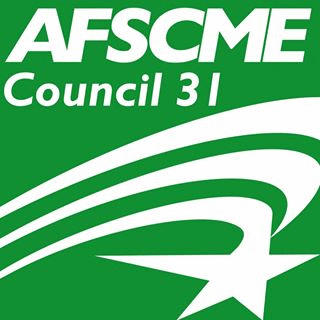BY CARL GREEN
Illinois Correspondent
 Springfield, IL – AFSCME Council 31, the largest union of Illinois state employees, reached a tentative agreement for a new contract Friday with Gov. J.B. Pritzker. It would be their first new contract since the last one expired in 2015.
Springfield, IL – AFSCME Council 31, the largest union of Illinois state employees, reached a tentative agreement for a new contract Friday with Gov. J.B. Pritzker. It would be their first new contract since the last one expired in 2015.
Contract terms were withheld pending a ratification vote by the council’s 40,000 members. The vote had not been scheduled yet on Friday.
After the last contract expired, and former Gov. Bruce Rauner halted negotiations in 2017 and declared an impasse, hoping to use that to dictate new terms, even though union representatives were ready and willing to continue negotiating.
Rauner announced he would return to bargaining when he took office in January.
Pritzker and Council 31 Executive Director Roberta Lynch expressed their appreciation for the new working relationship.
“This agreement reflects a fresh start for public service workers in state government,” Lynch said. “For four years, union members did their jobs and served their communities despite Bruce Rauner’s chaos, hostility and constant attacks. In the Pritzker administration, AFSCME members have an employer who understands the importance of their work, respects their rights and is a constructive partner in the collective bargaining process.”
IN THE BUDGET
Pritzker said the agreement would be accommodated by the budget the Legislature was preparing on Friday.
“With this tentative agreement, Illinois has turned another important page from years of brutal ideological warfare,” Pritzker said. “Instead, this agreement respects the valuable contributions our workers make to the state and treats all our taxpayers fairly, thanks to months of negotiations that were constructive and frank.
“This agreement will be accommodated in the budget that the General Assembly will vote on, and even more importantly, it is consistent with my long-term plans to stabilize Illinois’ finances.”
Council 31 members protect children from abuse and neglect, care for veterans and people with disabilities, keep prisons safe, maintain state parks, help struggling families and provide countless other vital public services.


